- Olympic organizers are still scrambling to finish everything from a beach volleyball venue to a new subway line, set to open just days before the opening ceremony. At the village, where lines formed Sunday as athletes began checking in, work crews were still making last minute repairs.
- As many as 500,000 visitors are expected to travel to Brazil for the Games, many of them from the United States. Worries about security, the Zika virus and Brazil's economic crisis might discourage some travelers and VIP guests and around 28 percent of Olympic tickets have yet to be sold.
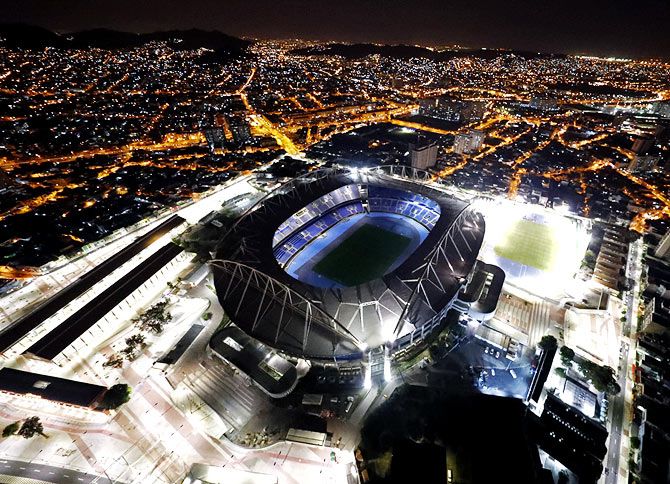
Tens of thousands of armed troops fanned out across Rio de Janeiro and local organizers faced a rebellion by Australia about unfinished living accommodations as athletes began to move in Sunday for the first Olympics ever in South America.
Australia's Olympic team, complaining about uninhabitable rooms in the Olympic Village, refused to check in. Kitty Chiller, the head of the country's delegation, complained of "blocked toilets, leaking pipes and exposed wiring."
In the final stretch before the Games start August 5, more than 60,000 troops took positions across the city, part of an overall contingent of more than 85,000 soldiers, police and other security forces that will be deployed for the event at a time of heightened fears after recent massacres in Germany, France and the United States.
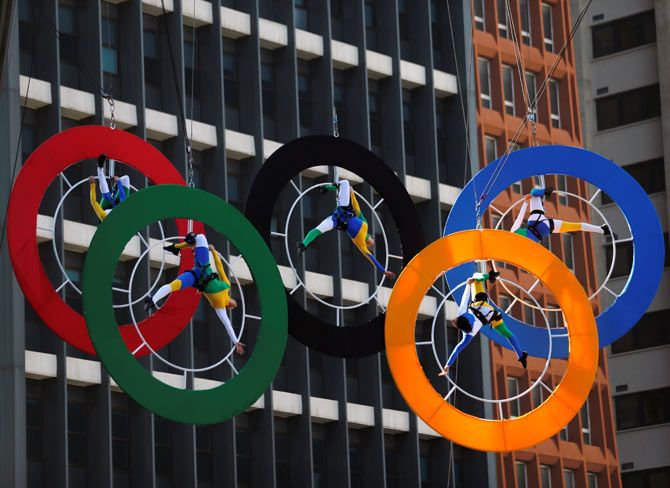
Meanwhile, authorities rerouted traffic in Barra de Tijuca, site of many game venues and the Olympic Village, which will house more than 11,000 athletes, coaches and staff.
Olympic organizers are still scrambling to finish everything from a beach volleyball venue to a new subway line, set to open just days before the opening ceremony. At the village, where lines formed Sunday as athletes began checking in, work crews were still making last minute repairs.
Australia's refusal to move in follows local media reports that some team delegations, concerned over similar issues, had sought to hire their own maintenance crews in order to make their quarters suitable.
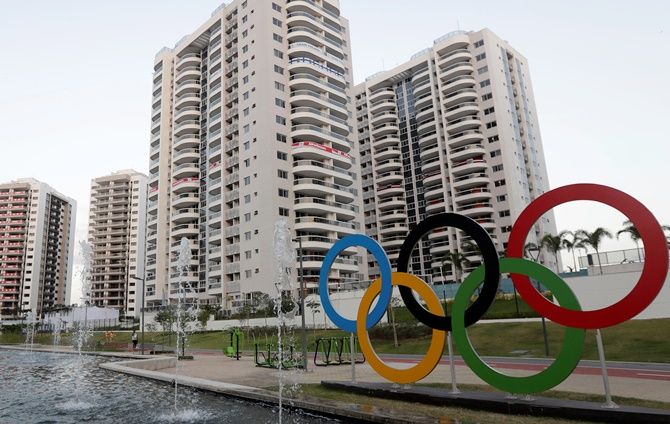
Mario Andrada, a spokesman for the local organizing committee, on Sunday said organizers are aware of the problems with some rooms, particularly affecting teams from Australia, New Zealand and Brazil.
"There are some electrical issues and some leaks," he said, noting that a team of about 500 workers is currently addressing the problems. "It's one of those things with new buildings, but it should not have happened."
Eduardo Paes, Rio's outspoken mayor, at a press conference made light of the Australians' complaints, saying that repairs would be made and that "I am just about to put a kangaroo in front of their building so it can jump and make them feel at home."
SUBWAY IN TEST PHASE
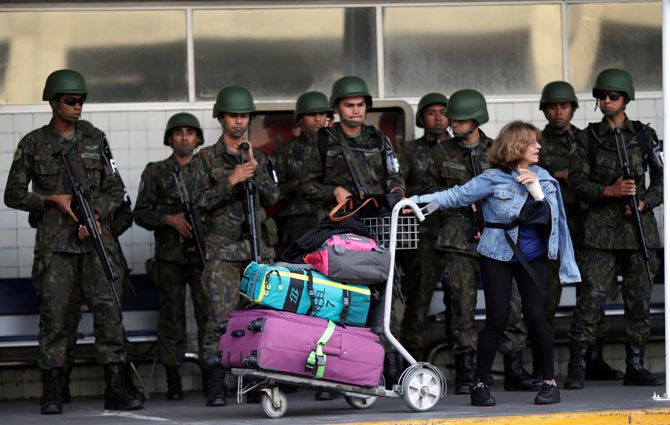
The problems are not unlike those before other big spectacles in Brazil, like the 2014 World Cup, for which stadium crews were still wielding paintbrushes and screwdrivers even minutes before kickoff.
The new subway line, which will connect the popular seaside neighborhoods of Copacabana and Ipanema to Barra de Tijuca, has suffered repeated delays and is still undergoing tests despite a scheduled inauguration next Saturday. Even then, the new line will operate only with partial service until after the Olympics.
As many as 500,000 visitors are expected to travel to Brazil for the Games, many of them from the United States. Worries about security, the Zika virus and Brazil's economic crisis might discourage some travelers and VIP guests and around 28 percent of Olympic tickets have yet to be sold.
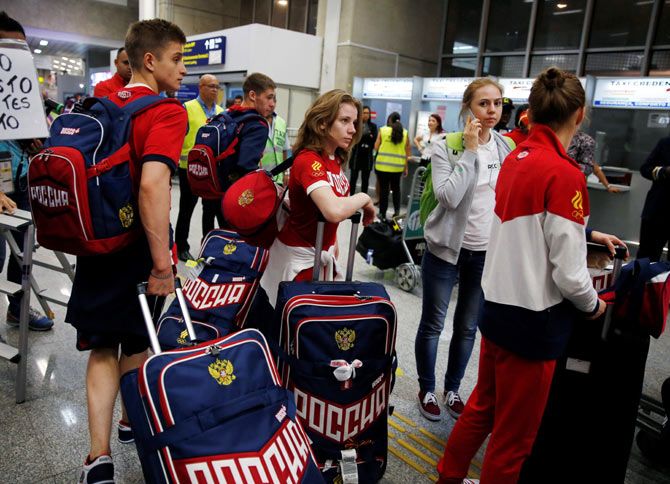
But authorities have left little to chance when it comes to protecting delegations and spectators.
The massive troop deployment, over twice that in place for the 2012 London Olympics, is meant to deter the sort of violence and street crime that are common in Rio, a chaotic metropolis of 12 million people.
Behind the scenes, Brazilian intelligence and police are coordinating with foreign counterparts to share intelligence and assess threats posed by terrorism.
Last week, after a tip from the US Federal Bureau of Investigation, police arrested 11 Brazilians who investigators say were sympathetic to the Islamic State militant group and had discussed the possibility of attacking the Games.













 © 2025 Rediff.com -
© 2025 Rediff.com -